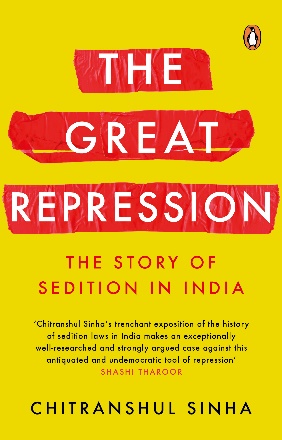
‘Chitranshul Sinha’s trenchant exposition of the history of sedition laws in India makes an exceptionally well-researched and strongly argued case against this antiquated and undemocratic rule of repression.’ Shashi Tharoor, Congress MP
‘The book concisely chronicles the entire 150-year journey of the law of sedition from its insertion in the Indian Penal Code in 1870. Despite the extensive and inevitable legal content, the book is highly readable, and Chitranshul Sinha makes a compelling case for the repeal of Section 124A’ Arvind P. Datar, Senior Advocate
The Indian Penal Code was formulated in 1860, three years after the first Indian revolt for independence. It was the country’s first-ever codification of offences and penalties. But it was only in 1870 that Section 124A was slipped into Chapter VI (‘Of Offences against the State’), defining the offence of ‘Sedition’ in a statute for the first time in the history of common law.
When India became independent in 1947, the Constituent Assembly expressed strong reservations against sedition as a restriction on free speech as it had been used as a weapon against freedom fighters, many of whom were a part of the Assembly. Nehru vocally opposed it. And yet, not only has Section 124A survived, it has been widely used against popular movements and individuals speaking up against the establishment.
Where did this law come from? How did it evolve? And what place does it have in a mature democracy? Concise, incisive and thoughtful, The Great Repression by Chitranshul Sinha, an advocate on record of the Supreme Court of India, tells the story of this outdated colonial-era law.
Hardback | Rs 499/- | 280 pp
Penguin Random House India


















